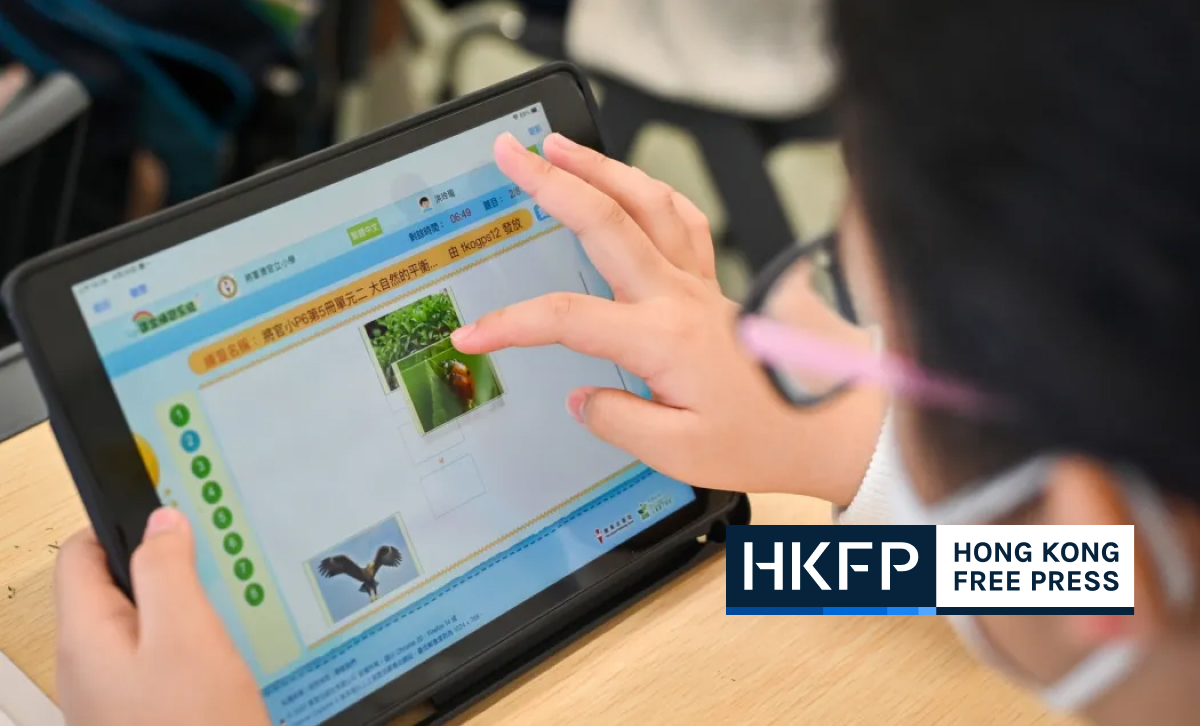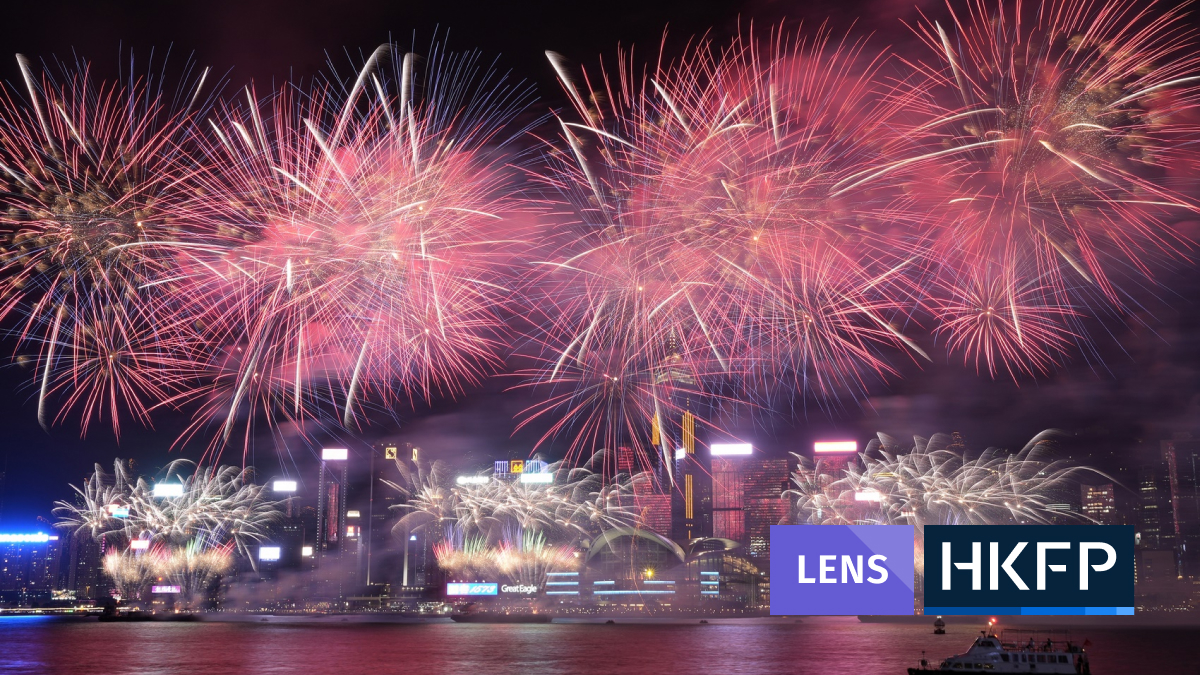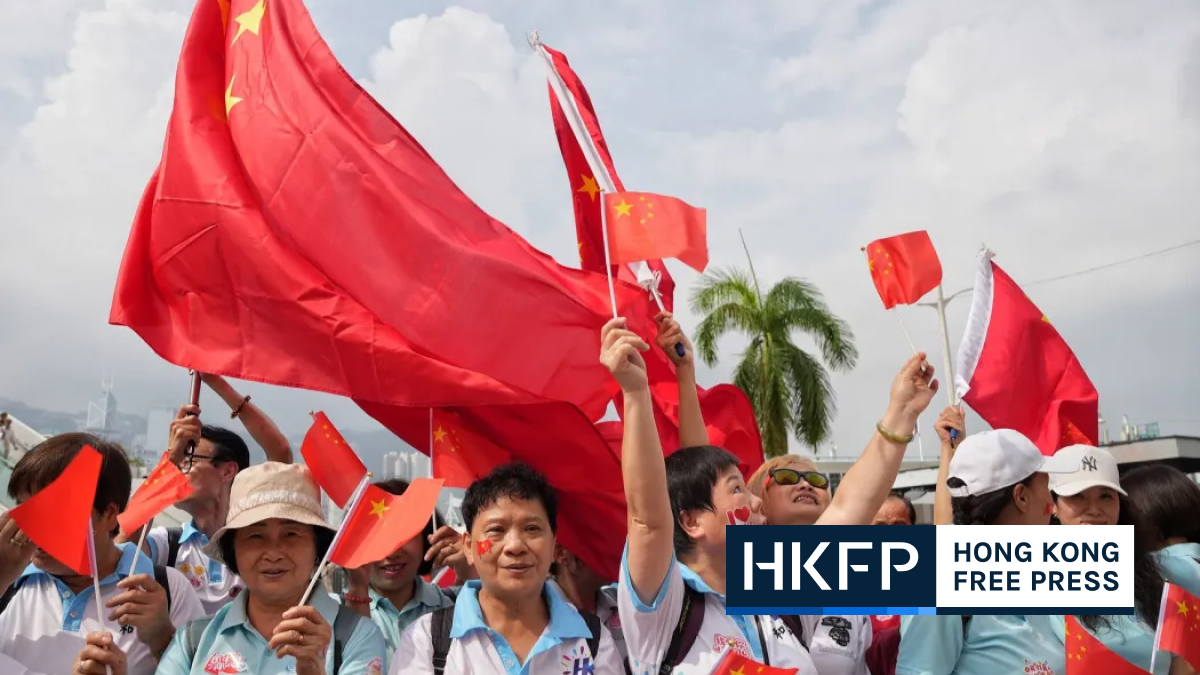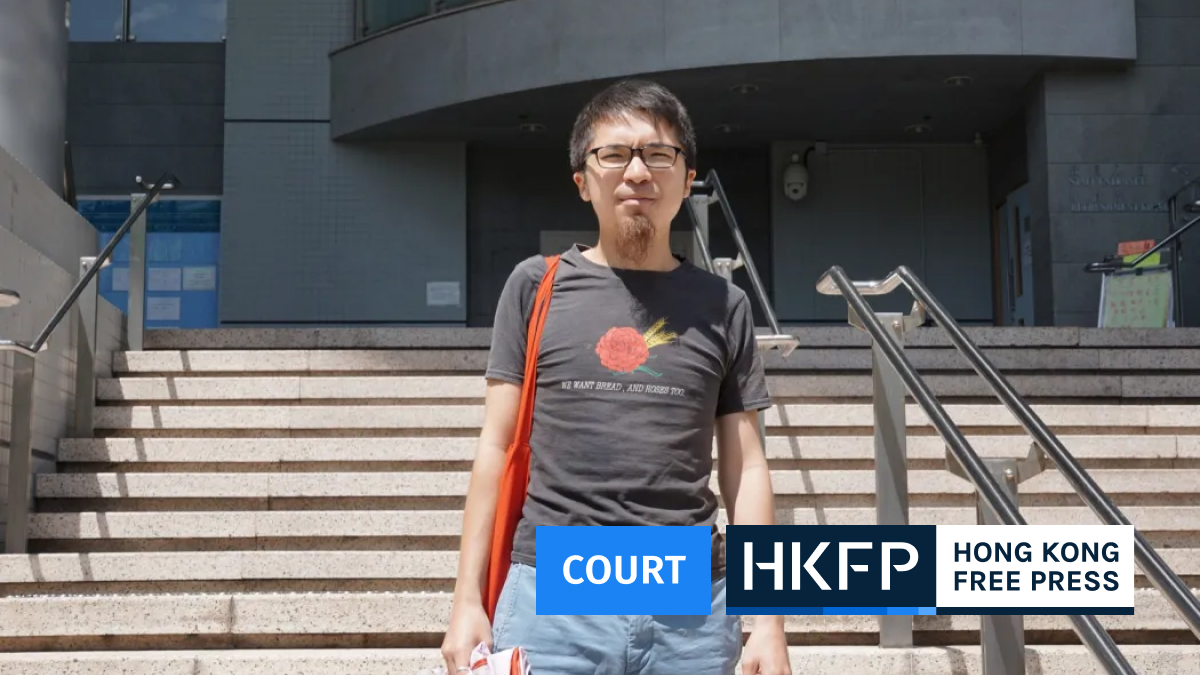Hong Kong’s long-standing universal mask mandate was dropped on Wednesday after almost 1,000 days. The act was largely seen as signalling the official end to a turbulent epidemic era in the Asian financial hub.

HKFP summarises the key mask-related moments from the long fight against Covid-19 – from queues outside pharmacies, mask-shortage memes and inmate-made masks to Hong Kong being one of the last places in the world to lift its mask mandate.
January 2020: Mask shortage
Covid-19 arrived in Hong Kong with a 39 year-old tourist from Wuhan at the beginning of 2020. He became the city’s first confirmed coronavirus case.
With experts referring the novel disease as “a SARS-like virus,” Hongkongers, especially those who lived through the SARS outbreak in 2003, were immediately alarmed by the virus.
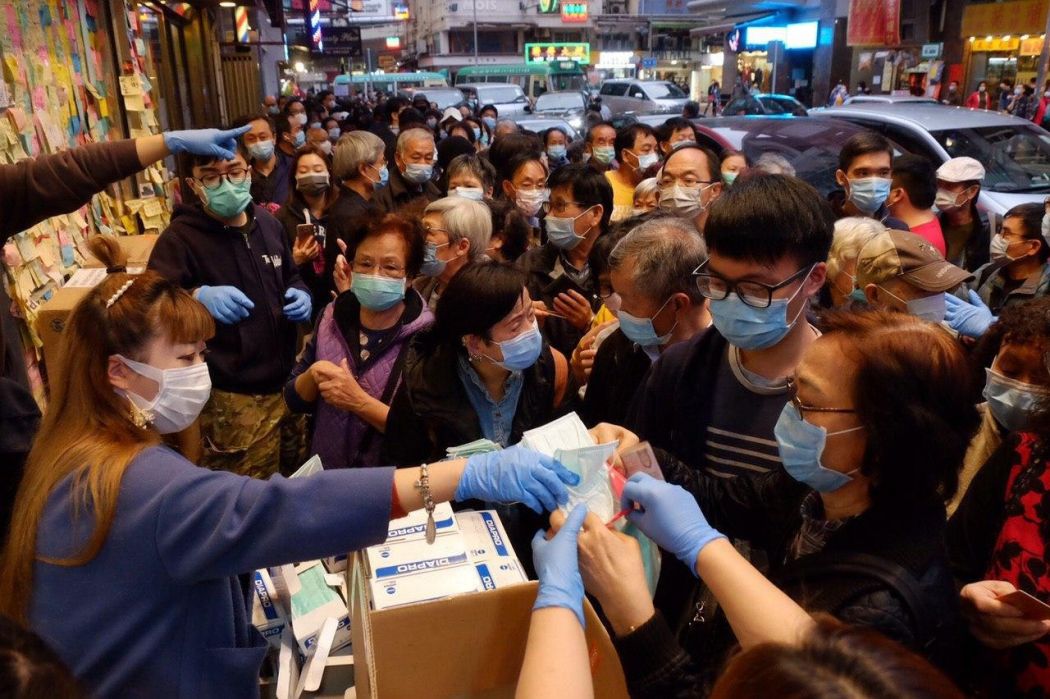
Within days, people flocked to pharmacies and supermarkets for medical face masks.
However, many were disappointed by the shortage of face masks and the drastic surge in prices – according to local media, at least one Mong Kok pharmacy was selling a pack of 20 surgical masks for HK$500 at the time. Some Hongkongers even queued overnight for face masks outside branches of pharmacy chain Watsons.

In those early days, pro-establishment lawmaker Ann Chiang posted a video on her social media explaining how to sanitise used medical masks by “steaming them at 100°C.” Chiang also reportedly told her colleagues that she had been wearing “steamed masks.”
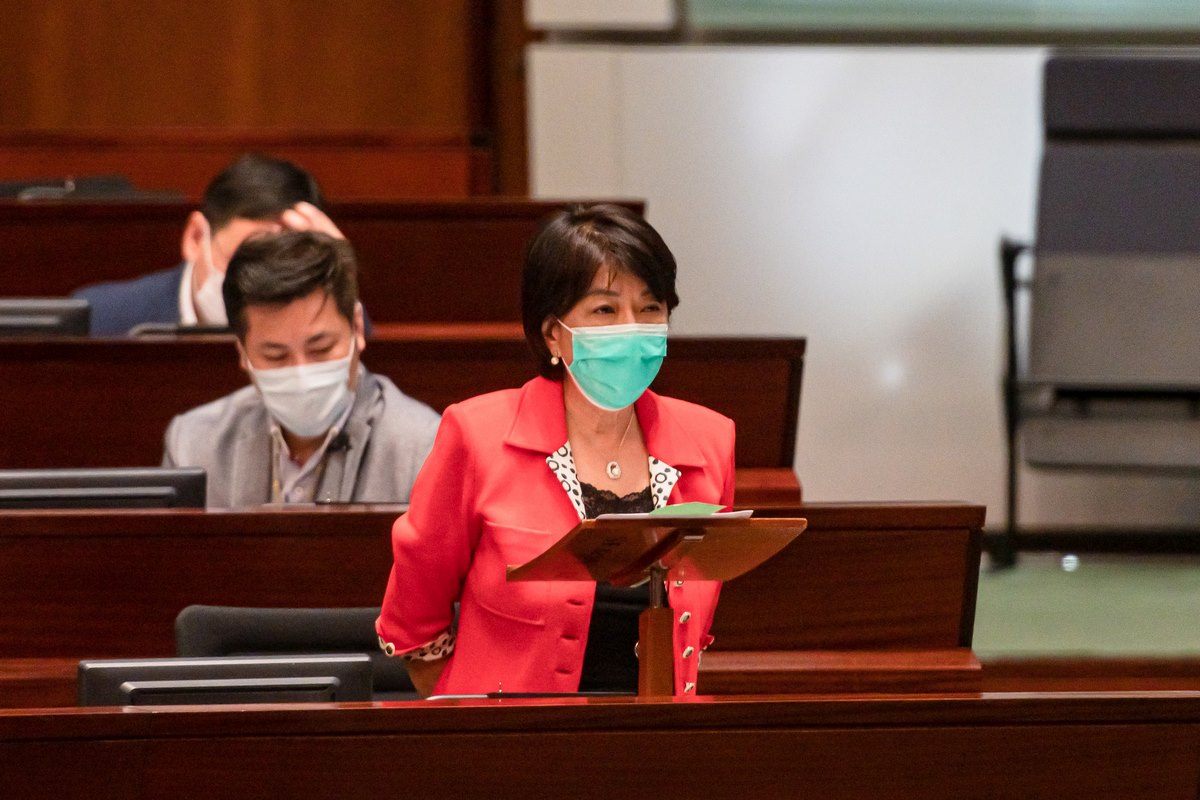
As Macau and Taiwan quickly formulated policies to allocate masks fairly and boost production, then-chief executive Carrie Lam’s reaction to the scarcity of face coverings in Hong Kong came under fire.
February 2020: Carrie Lam’s reaction
Lam attempted to remedy the brewing public relations crisis, in part by urging officials to “take off their masks” if they were not urgently required.
“We have been unsuccessful in purchasing masks from mainland China, and around the world. Since everyone is competing for masks, we must use ours very carefully,” she said, adding that officials and public servants would not be given publicly-funded masks if they could not meet certain conditions.

Her comments backfired, with government employees expressing their discontent to the media.
March 2020: Hamsters make first appearance
The World Health Organization characterised Covid-19 as a pandemic on March 11, 2020. Also that month, Yuen Kwok-yung, who heads the microbiology department at the University of Hong Kong, warned the public that the coronavirus may not disappear for two to three years.
Some netizens called his prediction “absurd,” local media reported, with many assuming the outbreak would be over by the summer.

Yuen – who later was appointed to the government’s Covid-19 expert advisory panel – quickly became recognisable by his flat fold surgical mask, which he wore as he investigated virus outbreaks in the city.

Around this time, memes of hamsters captioned, “give me boxes of masks, thanks,” went viral online, as people continued to request masks from families and friends.
To combat the continuing mask shortage amid government inactivity, some civil society organisations, volunteers and NGOs launched workshops to teach people how to make their own masks and face shields.
They called it a kind of “self-help.”

Meanwhile, surgical masks manufactured by inmates of the Correctional Services Department (CSD) – known as CSi masks – and intended for use within government departments appeared on the open market, raising suspicions that government staff had been selling them.
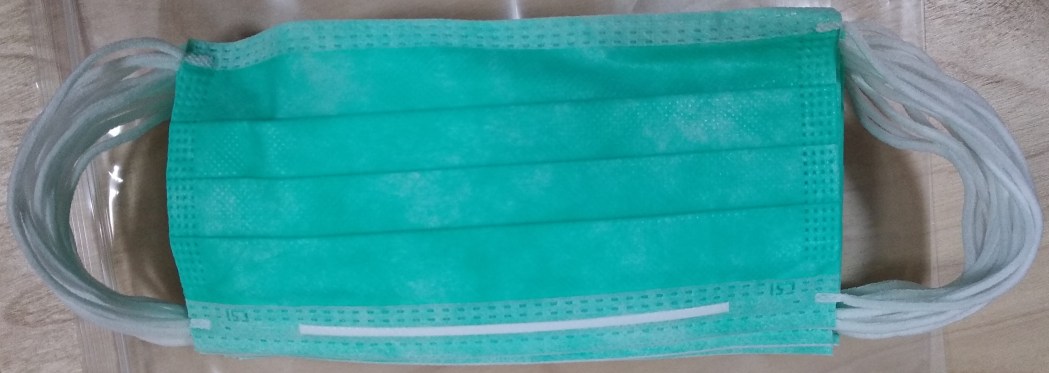
The Ombudsman investigated the misuse of prisoner-made masks after CSD refused to share data related to the CSi masks with news outlets. The CSi masks on sale were largely found to be expired stock that had not been disposed of according to standard procedure, the government watchdog concluded.
May 2020: CU Mask+
Lam’s government announced it would distribute locally-made reusable masks – dubbed CU mask+ – to all residents for free in May. However, many people declined to wear them.
Still, Lam wore a CU mask to press conferences. While meeting the press in June, Lam reportedly asked photographers to stop taking pictures of her adjusting her mask, saying it may have become slack after being washed.
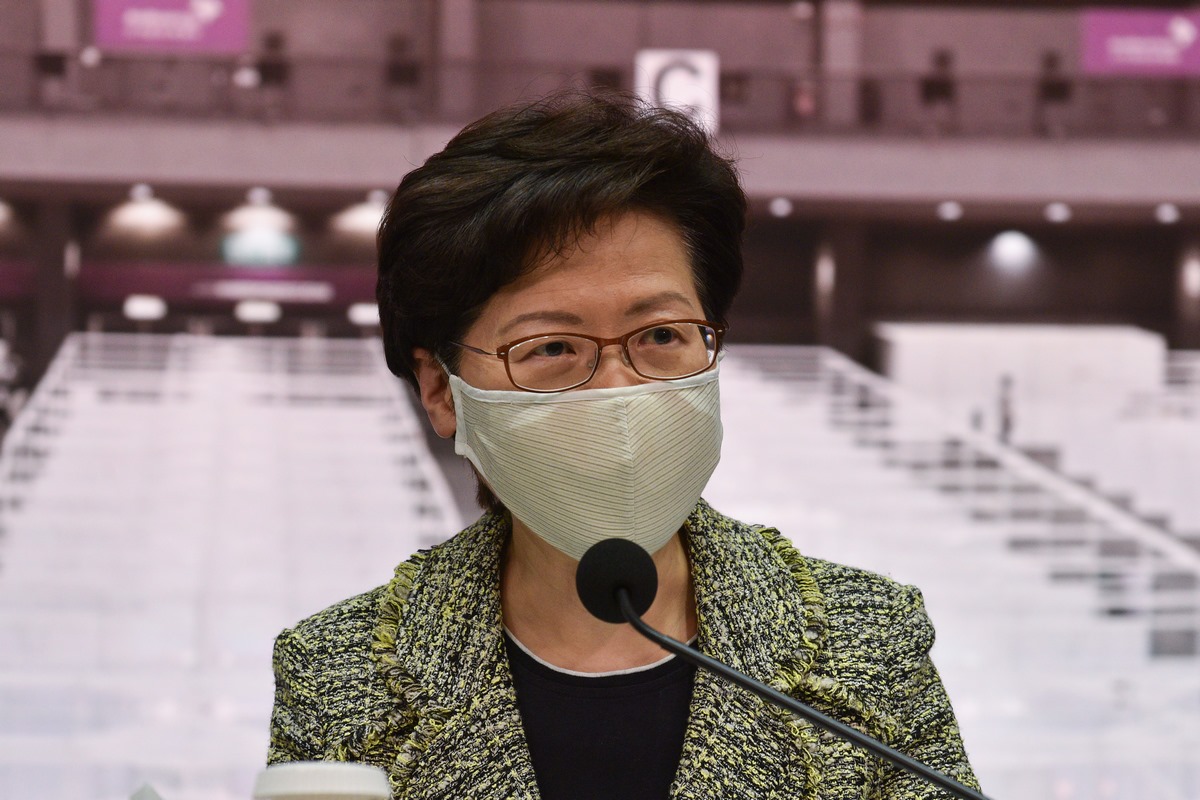
A few months later, Lam began wearing disposable surgical face masks again.
According to documents submitted to lawmakers, the government handed out 10.32 million CU masks – each costing around HK$26 – during two rounds of distribution. The total expense was HK$180 million.

The government was also criticised for not following its regular tender process to choose the masks’ manufacturers, while some questioned where there was conflict of interest and transfer of benefits.
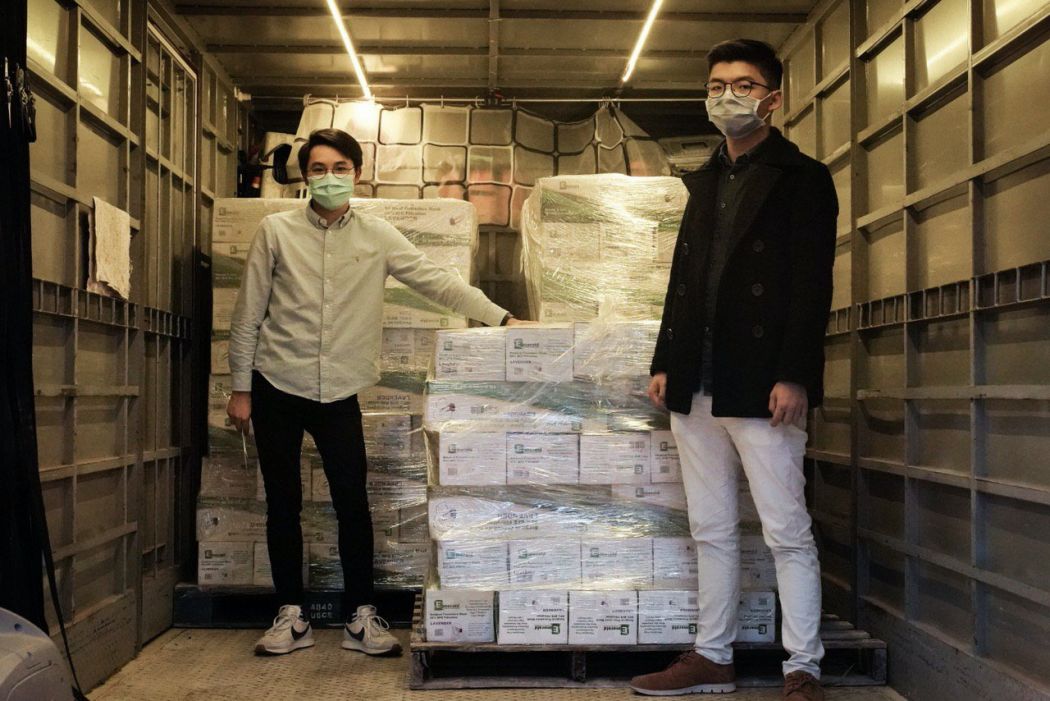
Also in May, several members of disbanded pro-democracy political party Demosisto were charged over false trade descriptions for selling “not made in China” face masks, which had been produced in Hong Kong.
July 2020: Mask mandate
A universal mask mandate was enacted in July 2020 as Hong Kong was hit by its third wave of Covid-19. Anyone not wearing a mask was hit with a fixed penalty of HK$5,000, even outdoors.
2021: Penalties and pageants
In the months that followed, thousands fell foul of the mask rule.
Busker Oliver Ma, known for his performances of the unofficial 2019 protests anthem Glory to Hong Kong, was charged with violating the Covid mask rule in May.
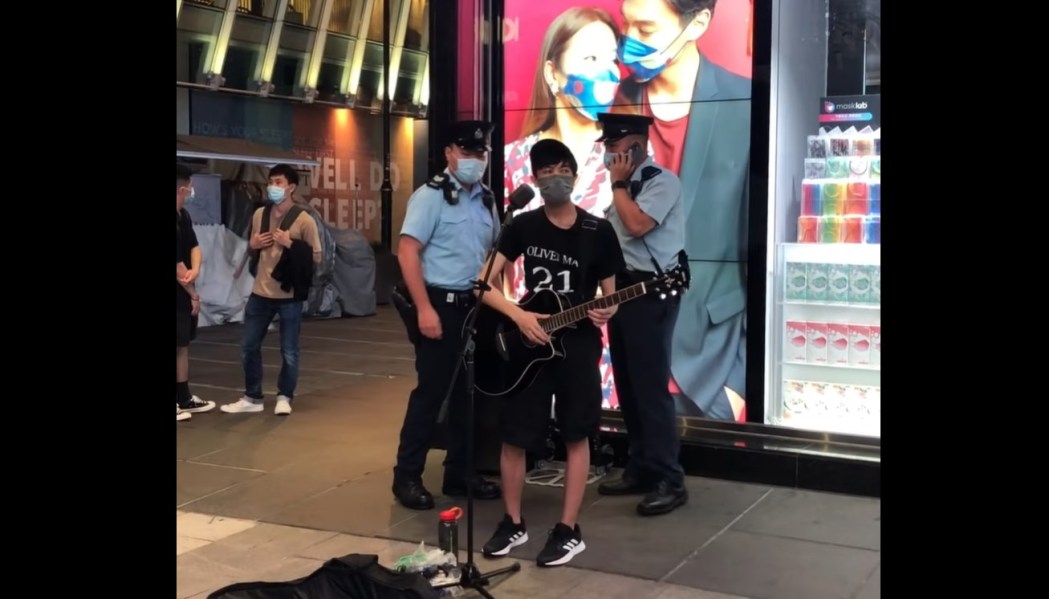
On the eighth year anniversary of the Lamma ferry incident that killed 39, activist Lui Yuk-lin – who attends the memorial every year – was fined for taking off her mask when paying her respects to those who died.

At least two former pro-democracy district councillors were also fined for violating the mask mandate. One of them, Kenneth Yip, told the press that everyone should be free not to wear a mask.

However, some tried to make mask-wearing entertaining. Local broadcaster ViuTV hosted a reality show called “Miss Mask Pageant,” where young women were judged on how they looked with masks. The show quickly gained popularity with viewers.
2022: ‘People need to feel my feeling’
In early 2022, then-leader Lam rebuffed concerns about her choice not to wear a face mask at press conferences, despite daily Covid-19 infections reaching an 18-month high.

She explained her move by saying that Hongkongers needed to hear her clearly. “Sometimes I’m pretty relaxed for example… but now I’m very sombre, very solemn, because I’m very worried – and wearing a mask would not allow the people to see for themselves… people need to understand and feel my feeling,” Lam told reporters in January.
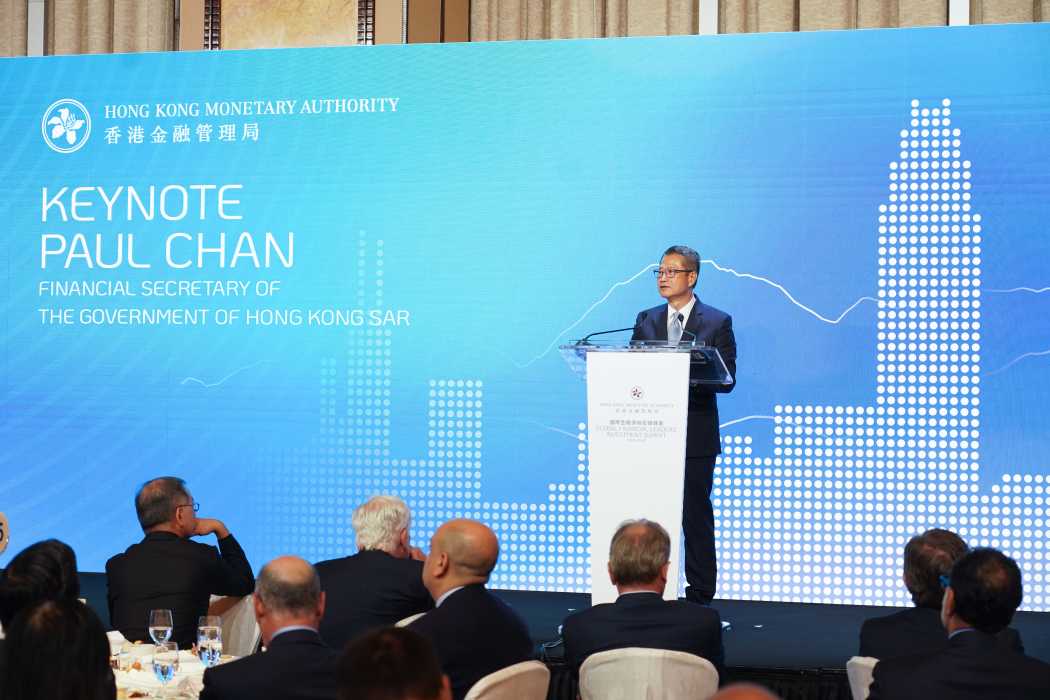
Financial Secretary Paul Chan tested positive for Covid-19 in November after returning from Saudi Arabia. Chan had been abroad to communicate Hong Kong’s recovery from the pandemic, and was not required to quarantine upon arrival in the city, despite his infection status.
2023: One of the last mask mandates
South Korea, Japan, Singapore, and Taiwan all dropped their mask mandates in early 2023.
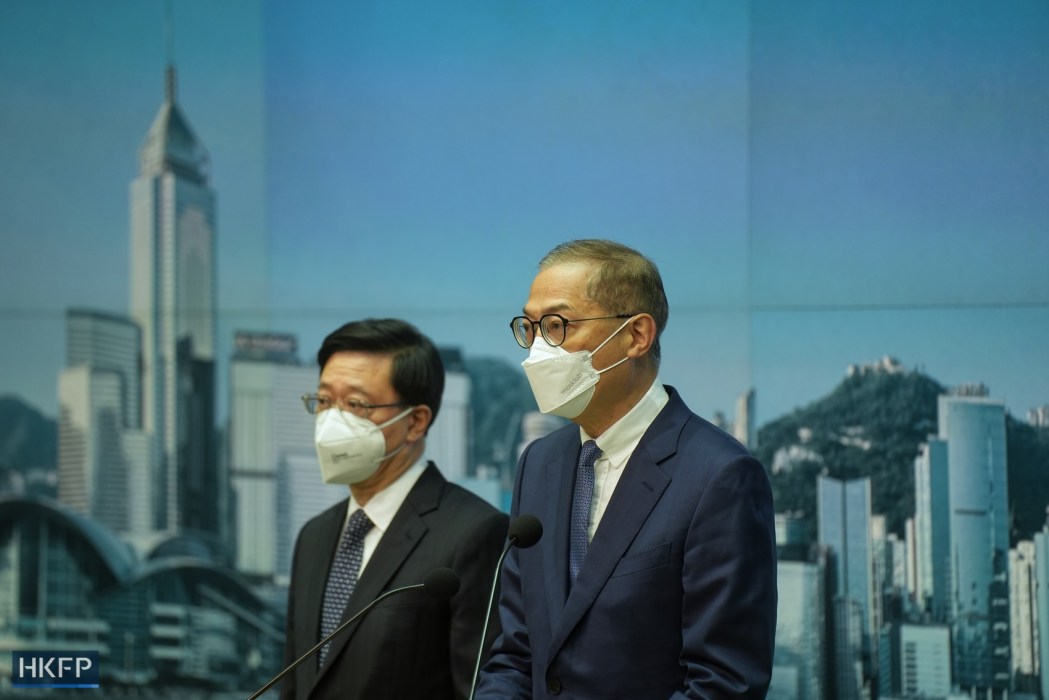
In Hong Kong, microbiologist Siddharth Sridhar called Hong Kong one of the only places in the world that still required face coverings in most public areas. A recent survey conducted by the Chinese University of Hong Kong also found that 60.7 per cent of respondents agreed that the city should drop all of its pandemic restrictions by the end of March.
The day after neighbouring Macau dropped its outdoor mask mandate, Lee made the announcement that Hong Kong would follow other Asian destinations in ending its mask rule.

“We look forward to March 1 – tomorrow – being better. Everyone can smile and say, ‘hello Hong Kong’,” health chief Lo Chung-mau told the press when announcing the decision.
In the days after the mask mandate was lifted, most Hongkongers continued to wear face coverings.
Support HKFP | Policies & Ethics | Error/typo? | Contact Us | Newsletter | Transparency & Annual Report | Apps
Help safeguard press freedom & keep HKFP free for all readers by supporting our team


